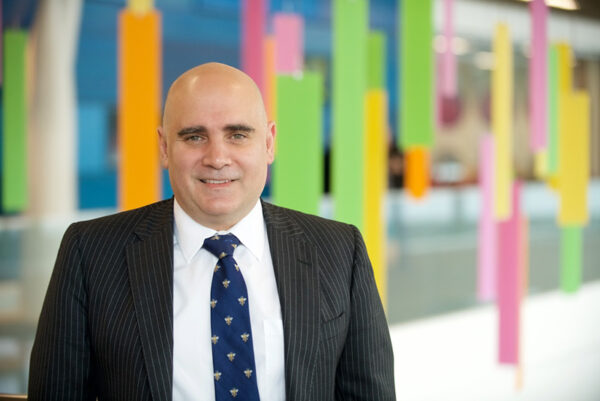
Dr. Reinaldo Garcia-Naveiro, division director of pediatric gastroenterology, hepatology and nutrition at Akron Children’s
National Hispanic Heritage Month is observed annually Sept. 15-Oct. 15. It’s a time to honor and celebrate the culture, heritage and contributions of Hispanic Americans, whose ancestry originates in Spain, Mexico, the Caribbean, and Central and South America.
To recognize the month, Dr. Reinaldo Garcia-Naveiro, division director of pediatric gastroenterology, hepatology and nutrition at Akron Children’s, shares more about his work and how he celebrates Hispanic culture through theater.
What is your role at Akron Children’s, and how long have you been with the hospital?
I’m division director of pediatric gastroenterology, hepatology and nutrition at Akron Children’s. It will be 9 years with the hospital this October.
Since I came to Akron Children’s, my role has been to create a gastrointestinal (GI) program. When I joined in 2013, I was the only gastroenterologist. I have been able to recruit 8 additional physicians and 3 nurse practitioners in the GI division. As a team, we created an in-patient service and a solid out-patient clinic with multiple satellite offices throughout the state. It has been an amazing experience for me, and a job that I hope will leave a legacy.
What do you enjoy most about your work at Akron Children’s?
Sometimes, it can be a difficult job. We take care of complicated patients but helping these families and providing outstanding care in our division is something that gives me great joy and satisfaction. I have the opportunity to work with great people and great leaders. It’s been exciting to help create this fantastic department and deliver premium care for the community.
As a Hispanic American, what does National Hispanic Heritage Month mean to you?
I was born in Venezuela, and I come from a family of immigrants. My mom is from Argentina. My dad is Venezuelan. My wife is Puerto Rican. My family for the last three or four generations have been immigrants, moving from one place to another, looking for better opportunities.
As a minority and an immigrant, it is important to feel a national recognition for us. I think making the whole country aware that there is a large Hispanic community that came here to work, to help and to grow the country, it’s important to be recognized and taken into consideration.
How do you recognize, honor and celebrate your Hispanic heritage?
I like to celebrate Hispanic Heritage Month by teaching our culture to other members of the Hispanic community, as well as other ethnic groups in our country. That’s important to me. I also like to participate in multiple events to promote the Latino culture. For me, it has become an important month. It’s a time to show other people who we are, and it can be used to enrich the traditions and cultures of this country.
I’m president of the board of the LatinUs Theater Company. We present plays in Spanish with English subtitles in downtown Cleveland. We have a show running through September called “La Siempreviva.” We welcome the community to come and watch our plays to learn more about the Hispanic culture.
As we strive to deliver culturally competent care and create an inclusive environment for our patients and families, what would you like others to know?
There has clearly been an improvement in diversity and inclusion at Akron Children’s. I feel like as an organization, we’re changing, growing and becoming more inclusive. Change is not easy, and it takes time, but I feel like Akron Children’s is following the right steps to get there. I have complete admiration for the leadership that they’re engaged with this transformation. That’s something I feel really proud of. We all need to work together to accept different types of cultures, races, ethnicities and nationalities. We need to let the people know we have open arms for anyone who wants to work here or be a patient here.
Akron Children’s recently opened a satellite office in Lorain County, and everything in that office is bilingual, including signage. There’s a large Puerto Rican community there that we’re providing services to. That’s one more example of Akron Children’s helping the most underserved communities. We should be very proud.










